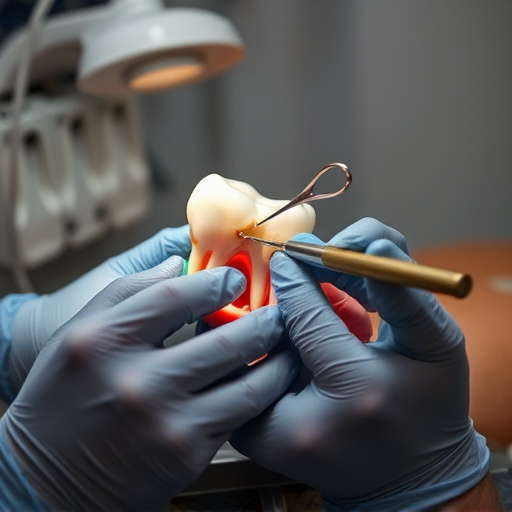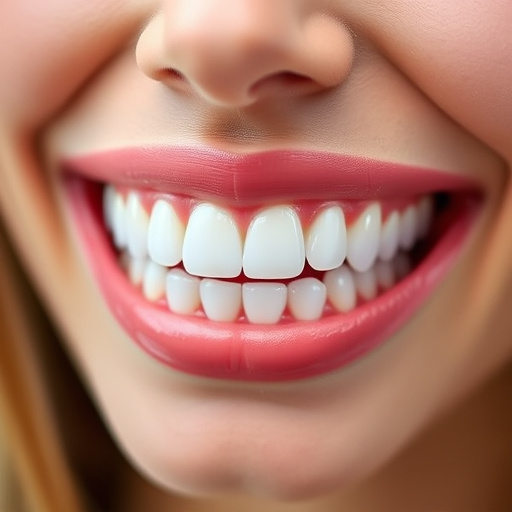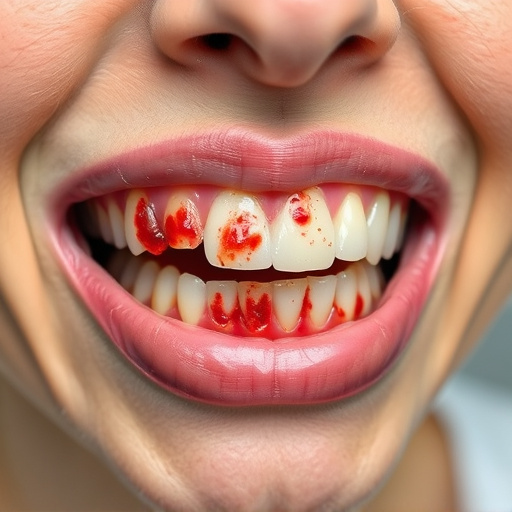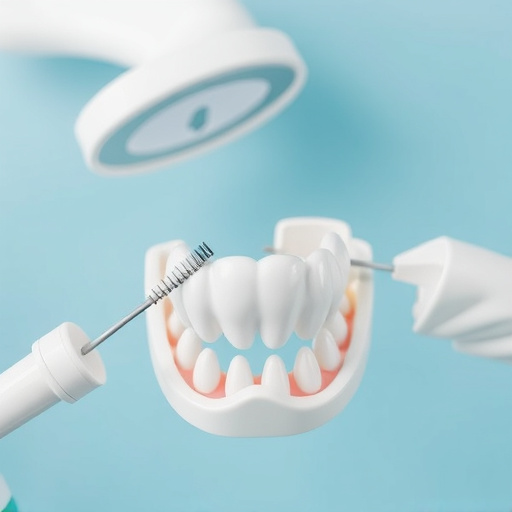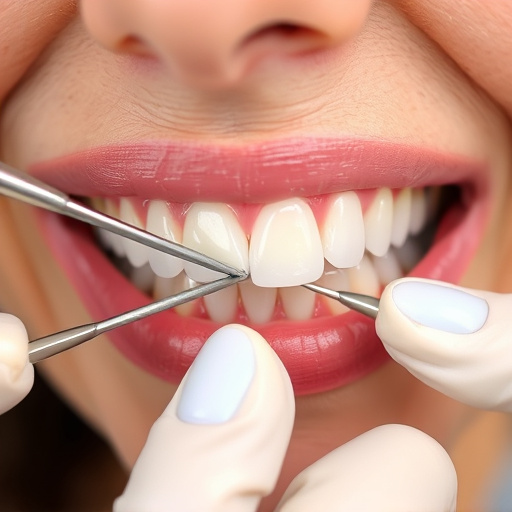A comprehensive preventive dentistry program tailored for children and teenagers is key to promoting dental health. It includes interactive lessons on brushing and flossing, regular check-ups with incentives, and advanced topics like nutrition and cosmetic options as they age. Tracking long-term adherence to daily brushing, flossing, and six-month cleanings, along with integrated measures like bonding or clear aligners, ensures healthy habits and strong smiles for life.
“A child’s smile is a precious asset, and prioritizing their oral health early on sets the foundation for a lifetime of healthy habits. This article explores the transformative power of a comprehensive preventive dentistry program tailored for children and teenagers. We delve into the significance of such initiatives, offering insights on how to design effective strategies and engage young minds.
Furthermore, we discuss implementation methods and tracking success, ensuring dental professionals can foster long-term oral health habits in this vulnerable yet vital age group.”
- Understanding the Importance of Preventive Dentistry for Young Smiles
- Designing a Comprehensive Program: Strategies and Activities
- Implementing and Tracking Success: Ensuring Long-Term Oral Health Habits
Understanding the Importance of Preventive Dentistry for Young Smiles

Preventive dentistry is a cornerstone of maintaining healthy smiles, especially for children and teenagers. By prioritizing early interventions and regular check-ups, we can set young individuals on a path to lifelong dental wellness. This approach extends far beyond the typical tooth extraction or emergency dental cleanings; it’s about fostering a love for oral hygiene and creating a robust defense against common dental issues.
A comprehensive preventive dentistry program includes educating young patients about proper brushing and flossing techniques, as well as regular visits for professional teeth cleaning. These measures help remove plaque buildup and identify potential problems early on, reducing the need for extensive treatments later in life. This proactive strategy not only preserves the integrity of growing smiles but also instills good oral hygiene habits that will serve them throughout their lives.
Designing a Comprehensive Program: Strategies and Activities
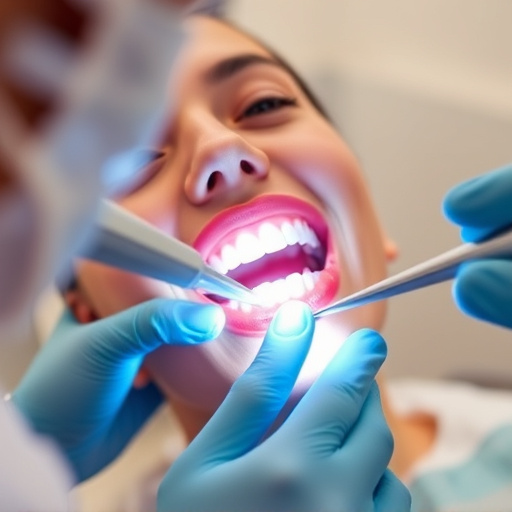
A well-designed preventive dentistry program for children and teens should encompass a multi-faceted approach to maintain and enhance oral health from an early age. Strategies should include education, motivation, and practical activities tailored to different age groups. Start with simple, engaging lessons on proper brushing and flossing techniques suitable for young children, teaching them the importance of these habits through interactive demonstrations and games. As kids grow into teenagers, incorporate more complex topics like nutrition’s impact on dental health, encouraging whole foods over sugary treats.
Incorporate regular check-ups with age-appropriate incentives to create a positive association with dental visits. For older teens, consider introducing discussions on cosmetic dentistry as an option for enhancing smiles while also emphasizing the importance of oral hygiene and preventive care to avoid extensive future treatments, including potential dental implants. By combining educational, interactive, and incentive-based strategies, a comprehensive preventive dentistry program can foster good oral health habits that will serve children and teenagers well into adulthood.
Implementing and Tracking Success: Ensuring Long-Term Oral Health Habits
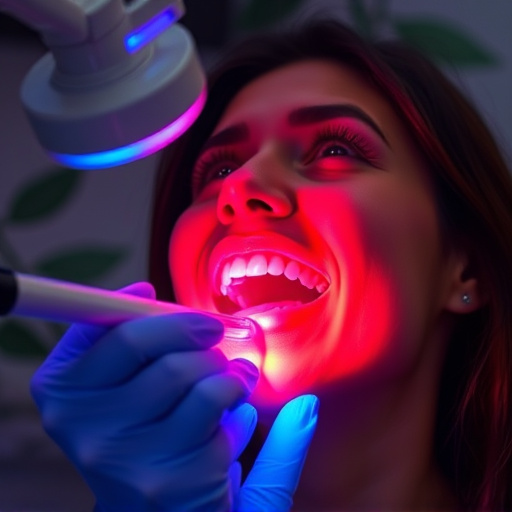
Implementing a comprehensive preventive dentistry program is just the first step; tracking and ensuring long-term adherence to healthy oral habits is equally vital. This involves regular communication with both children and their parents or guardians, educating them on the importance of consistent dental care routines at home. These include daily brushing and flossing, as well as scheduling routine dental cleanings every six months to remove plaque buildup and monitor overall oral health.
By integrating preventive measures such as dental bonding for minor defects or clear aligners for orthodontic needs, practitioners can foster a positive relationship with patients, encouraging them to embrace proactive dental care. Regular follow-ups and ongoing education are key to tracking success, ensuring that children develop and maintain healthy habits that will contribute to a lifetime of strong, healthy smiles.
A well-designed preventive dentistry program for children and teens is a powerful tool to foster lifelong oral health habits. By combining education, fun activities, and regular checkups, we can empower young smiles to navigate a lifetime free from dental decay and pain. These programs should be comprehensive, engaging, and tailored to different age groups, ensuring that kids not only understand the importance of good oral hygiene but also enjoy the process. With consistent implementation and tracking, we can significantly reduce dental issues in children and teens, leading to healthier, happier mouths for years to come.
